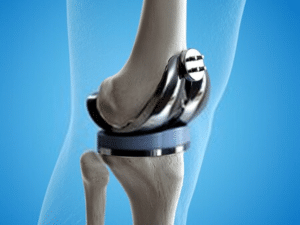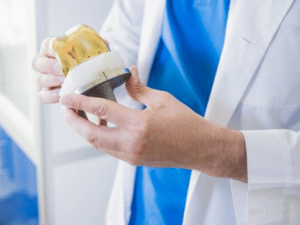Knee Replacement
Knee Replacement in Iran
Best knee replacement hospital in Iran
A large number of Iranian and foreign patients are going under knee replacement in Iran each month. knee replacement in Iran is on top of the middle-east regarding its skilled specialists and surgeons.
Here are the best hospitals for knee replacement in Iran:
- Treata Professional Hospital
- Gandi Hospital
- Moheb Mehr Hospital

knee replacement cost in Iran
There is a significant difference between the cost of knee replacement in Iran and other countries. The most important factors for the low price of it in Iran are:
- A large number of knee replacement hospitals in Iran.
- A large number of applicants for knee replacement in Iran.
knee replacement cost in Iran varies depending on the knee replacement and the hospital. An average cost of knee replacement in Iran is $6000.
Knee replacement cost in Iran in comparison with other countries
This surgery costs $50000 in the U.S., $45000 in Europe, $30000 in Thailand and $16000 in Turkey.
Best knee replacement surgeon in Iran
A lot of orthopaedic surgeries are being performed each year in Iran. Experienced Iranian doctors with an excellent record are performing the operations. One of the most important factors for choosing a good surgeon for knee replacement in Iran is a doctor has done many knee replacement surgery.
You can find the best doctors for knee replacement in Iran on our website by following their different experiences.
Why should you travel to Iran for a knee replacement?
Many patients travel to Iran for knee replacement. One of the reasons for this matter is Iranian specialists and surgeons who have high surgery success rates.
- Low cost of knee replacement in Iran
- Low cost of accommodation in Iran
- Well experienced doctors
- The high number of knee replacement in Iran
Knee replacement centres accordant with today’s European standards are performing the highest quality operations in Iran. Another reason for knee replacement in Iran is its lower cost compared to other countries.
How long should I stay for knee replacement in Iran?

About Knee Replacement
Total knee replacement is a surgical option for patients with arthritis of the knee. This operation can relieve pain and maintain motion in the arthritic knee joint. Arthritis can affect joints, over time; the smooth cartilage on the surface of the bones wears away. This can result in pain, inflammation, and swelling of the joints. Knee replacement surgery is a procedure to replace this damaged joint to eliminate this pain and swelling for a long time. Arthritis does not have any kind of full treatment; all kinds of medications and procedures are just temporary and can just slow it down. But surgery can be the last (and maybe permanent) solution for this painful problem.
Types of knee replacement
- Total knee replacement (TKR): is the most common procedure- replacement of both sides of the knee joint- lasts between 1 to 3 hours
- Partial knee replacement (PKR): replacement of only one side of the knee- less blood loss and a lower risk of infection and blood clots- higher chance of more natural movement.
Recommended for
- Patients with knee osteoarthritis
- People who have sustained a serious knee injury
- Patients who are not significantly overweight
Before Knee Replacement
Patients should stop taking certain medications such as Aspirin, anti-inflammatory drugs and herbal supplements prior to the surgery. They should stop smoking a few weeks before and after the surgery. They should stop drinking and eating around 6 hours before the surgery. Also, they may need additional imaging tests, like X-rays and EKG before the surgery.
During Knee Replacement
The patients usually undergo general anaesthesia. The surgeon cleans the surgical site and makes an incision in the knee area. The surgeon removes the damaged surfaces of the knee joint and resurfaces the knee joint with the prosthesis. The prosthesis is generally comprised of three components: the tibial component (to resurface the top of the tibia); the femoral [thigh bone] component (to resurface the end of the thighbone); and the patellar component (to resurface the bottom of the knee cap that rubs against the thighbone). After that, the surgeon closes the incision with stitches.
Recovery
Patients may stay 3 to 5 days at the hospital. They will need help from a physical therapist who will give some exercises to strengthen the repaired knee. They should elevate the leg to reduce swelling. Three to six weeks after surgery, they can resume most daily activities. The surgeon may prescribe some painkillers to control the pain.
You can also get to know more about different orthopedic surgeries on Achilles Tendon Surgery in Iran